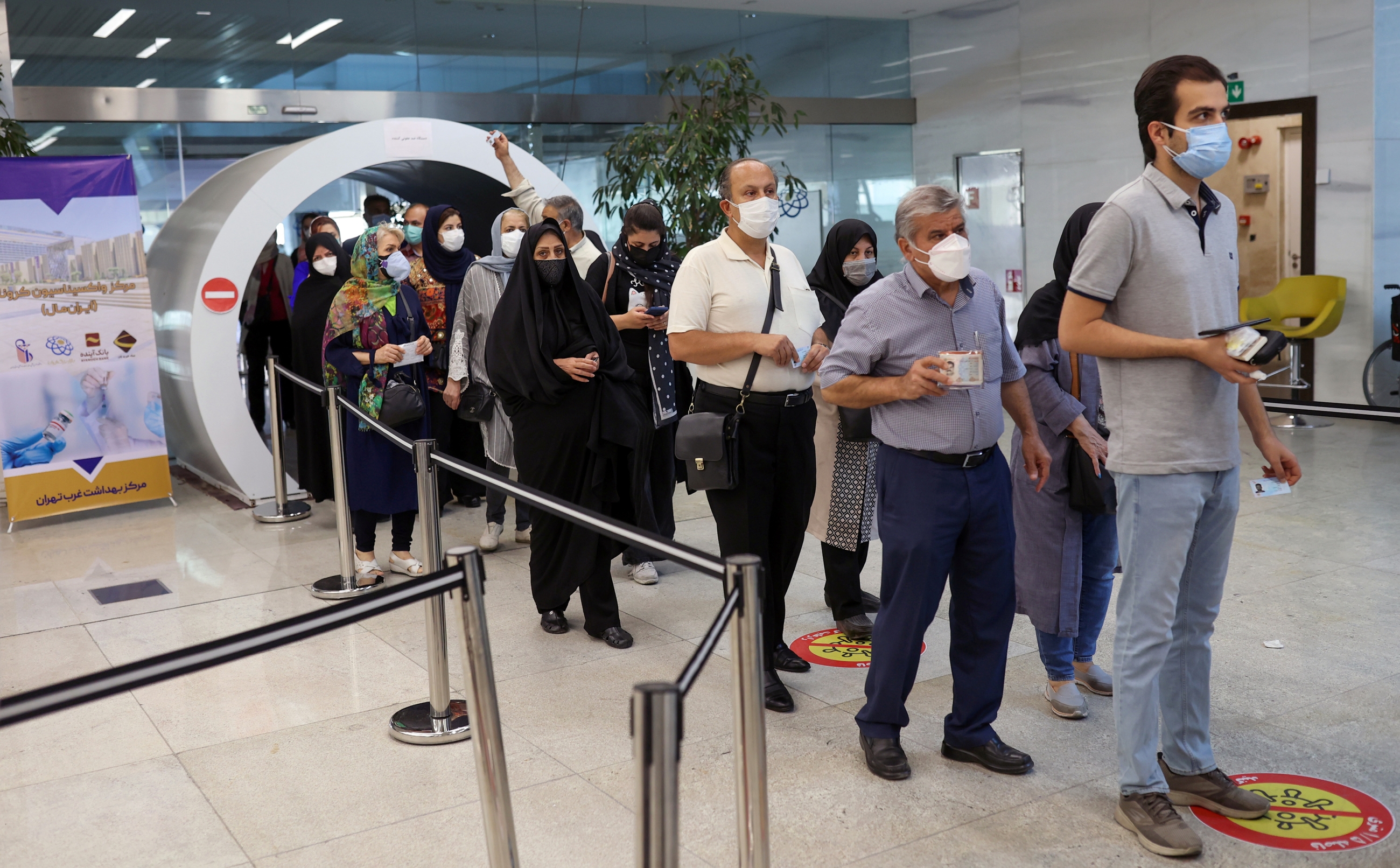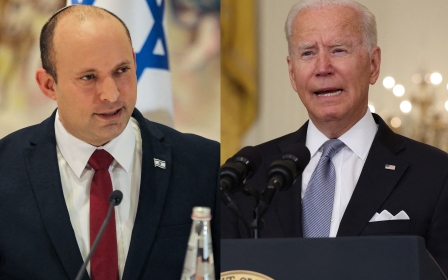Iran's government undermining Covid-19 response, says Human Rights Watch

Human Rights Watch (HRW) has urged Iranian authorities to redouble efforts to respond effectively to the Covid-19 pandemic, claiming the ban on importing US and UK-produced vaccines and a lack of government transparency are exacerbating the already dire impact of the coronavirus.
The New York-based human rights watchdog said on Thursday that Iran should use "all resources necessary to secure lifesaving vaccines" and transparently communicate and enforce "effective and clear vaccination and other safety guidelines".
"Iranians are expressing their anger at the authorities' incompetence and lack of transparency in controlling the Covid-19 pandemic, which is costing an Iranian life every few minutes," Tara Sepehri Far, Iran researcher at HRW, said in a statement.
Iran's death toll from Covid-19 exceeded 100,000 on Thursday, with 564 fatalities recorded in the previous 24 hours, according to Health Ministry data, while 31,266 new cases were reported in the same period.
At the same time, the rights group said the country faced a shortage of hospital beds and medicine, including the Covid-19 vaccine. Only five million out of 85 million people have been fully vaccinated against the disease.
In January, Supreme Leader Ayatollah Ali Khamenei banned the import of vaccines manufactured in the United States and the United Kingdom, including the Pfizer, AstraZeneca and Moderna jabs.
The Iranian Red Crescent Society later announced the cancellation of its plans to import 150,000 doses of the Pfizer vaccine donated by a US charity, according to HRW.
US sanctions
Iranian authorities have instead publicly promoted the production of its domestic vaccine while also noting that negotiations with other countries - such as Japan and Korea - to import the Covid-19 vaccine have been hampered by US sanctions on Tehran.
Iran's Health Minister Saeed Namaki vowed in May that by March 2022, "Iran will be among the few countries who will have fully completed their general vaccination".
'Iranian authorities cannot blame sanctions to excuse their mismanagement'
- Tara Sepehri Far, Human Rights Watch
However, by early June, the country faced a severe vaccine shortage after shipments from China and Russia stopped coming in, leaving Tehran no choice but to pause the national vaccination drive.
"Public trust is a crucial factor in managing the public health crisis, yet Iranian authorities' track record of repeated failure is happening again," said Sepehri Far, the Iran researcher at HRW.
In April, more than 40 progressive groups urged the United States to lift restrictions that "have obstructed the flow" of critical medicine and humanitarian goods into Iran amid the Covid-19 pandemic.
In June, the US Treasury Department issued an additional general licence for transactions and activities involving the delivery of face masks, ventilators, and oxygen tanks, vaccines and the production of vaccines, Covid-19 tests, air-filtration systems, and field hospitals.
Still, Sepehri Far said that "Iranian authorities cannot blame sanctions to excuse their mismanagement".
Middle East Eye delivers independent and unrivalled coverage and analysis of the Middle East, North Africa and beyond. To learn more about republishing this content and the associated fees, please fill out this form. More about MEE can be found here.





